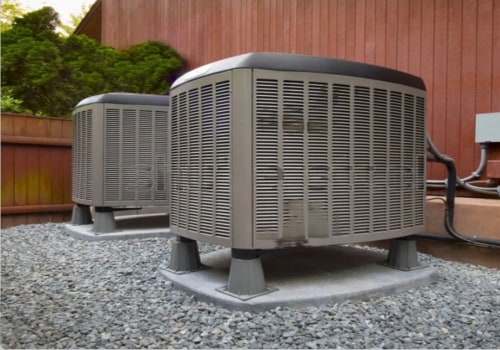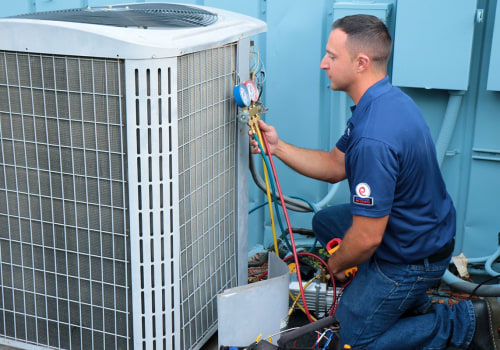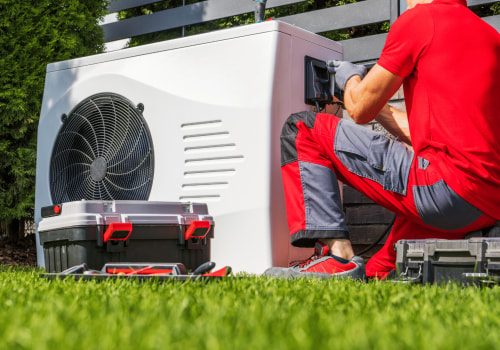How Dirty HVAC Air Filters in Your Home Affect Comfort
A dirty HVAC air filter can greatly affect comfort at home. Clogged filters lower indoor air quality, leading to more allergens circulating around. This forces the system to work extra hard, creating uneven temperatures and driving up energy costs.
Reducing airflow, as well as strange noises made by the HVAC unit, are signals that the equipment demands maintenance. This causes stress on the system, leading to its life being reduced by early breakdowns and expensive repairs.
Regular filter changing every month or two is what keeps everything in order and also maintains comfort levels.
Key Takeaways
Dirty HVAC air filters block airflow, causing uneven temperatures and discomfort throughout the house.
Clogged filters let allergens like dust mites and pet dander circulate, intensifying allergy symptoms and impacting overall comfort.
Increased pressure on the HVAC system from unclean filters may lead to overheating, creating uncomfortable indoor conditions.
Neglected air filters result in higher energy bills, adding financial strain alongside physical discomfort from insufficient heating or cooling.
Regularly changing air filters improves air quality, fostering a healthier and more pleasant living space.
Effects on Indoor Air Quality
Improving indoor air quality starts with a good choice in an HVAC air filter. A proper filter captures dust, pollen, and pet dander that have the potential to cause damage to respiratory health, thus reducing allergens and the severity of asthma attacks if not using a dirty or low-quality filter.
For the best air quality, filters should ideally have a high minimum efficiency reporting value rating. Greater-rated filters may capture smaller and smaller particles thus providing greater safeguarding against unwanted allergens. Its replacement every one to three months keeps it efficiently working and inhibits dirt/debris from creating a problem hurtful to its air quality.
Proper filter maintenance matters for health, but it also affects HVAC system efficiency. A clean filter helps the system operate more effectively, creating a comfortable indoor environment. Invest time in selecting and maintaining the air filter. Lungs will appreciate this effort, and breathing will feel easier knowing pollutants are reduced. Prioritize air quality for a fresher, healthier home atmosphere.
Impact on Energy Efficiency
Choosing the right HVAC air filter significantly impacts energy efficiency and utility bills. A dirty air filter restricts airflow, forcing the system to work harder to keep comfortable temperatures. This added strain may cause uneven heat distribution, making some rooms warmer or cooler. Consequently, frequent thermostat adjustments can lead to increased energy costs.
A clogged filter not only increases energy use but also adds to the costs of maintenance. When the HVAC system is forced, wear and tear are much more probable and costly in repair or even cause early failure, which may oblige investment in a new unit sooner than liked. Changing air filters from time to time maintains the smoothness of the airflow, hence energy efficiency. Keeping the HVAC system well-maintained will lead to a comfortable home, while reducing energy use and overall costs. Check filters regularly—budget benefits await!
Increased Allergen Presence
Air quality suffers in homes when HVAC air filters are neglected. A dirty filter cannot trap allergens effectively, resulting in more allergens in indoor air. Common sources of allergens, such as dust mites, pet dander, and pollen, can easily circulate, especially during seasonal changes when outdoor allergens increase.
With seasonal shifts, many may notice worsening allergy symptoms, worsened by a clogged filter. A blocked filter fails to capture particles, allowing them to thrive and making living spaces uncomfortable. Sneezing, coughing, or watery eyes signal that allergens are rising.
Regularly checking and replacing HVAC air filters is crucial. Aim for replacements every one to three months, depending on specific circumstances, like having pets or residing in a dusty area. This simple maintenance task can greatly enhance indoor air quality, lowering allergen levels and creating a healthier home for everyone.
Strain on the HVAC System
Neglecting HVAC air filters is responsible for the further deterioration of indoor air quality while gradually straining the HVAC system. The effects of dirty HVAC air filters in a house can limit airflow, forcing the system to work harder to realize the ideal temperature. The additional effort risks overheating and becomes inefficient, massively reducing the longevity of the system in question.
Maintenance costs increase when the HVAC system has difficulty functioning. Repeated repairs become necessary if the components experience chronic stress due to clogged filters. A properly maintained system will last over ten years, but neglecting air filters can drastically shorten that period.
Check and replace air filters regularly as part of home maintenance to prevent these problems. Such a simple task can avoid costly repairs and extend the lifespan of the HVAC system. A clean filter improves comfort by enhancing air quality while ensuring efficient system operation. Inspect filters routinely; your system will appreciate it!
Signs of a Dirty Filter
Neglecting signs of a dirty filter can cause significant problems in HVAC systems and indoor comfort. Reduced airflow often indicates neglect. If the system struggles to push air through vents, a clogged filter may be the cause. Increased energy bills can also occur; when HVAC units work harder, they consume more energy.
Inconsistent temperatures throughout a home may suggest that a filter is obstructing airflow. Some rooms might feel too hot or too cold. Unusual noises, like rattling or whistling, can signal that the system is overworking due to a dirty filter.
Dust buildup around vents or on surfaces is another clear sign. If the home feels dustier than usual, this might mean pollutants are not being captured effectively. To prevent these problems, maintain filters properly: check them monthly and replace them every three months or sooner if they look dirty. Keeping an eye on these signs helps maintain HVAC performance and keeps indoor comfort at its best.
Frequently Asked Questions
How Often Should I Check My HVAC Air Filter?
Check HVAC air filters monthly. Regular maintenance ensures optimal performance. Depending on usage and filter lifespan, replacement every one to three months yields best results.
Can a Dirty Filter Cause Odors in My Home?
A dirty filter can lead to unpleasant smells in your home. When air quality suffers due to poor maintenance, dust and bacteria build up, creating musty odors. Regularly checking filters helps prevent this issue.
What Type of Filter Is Best for My HVAC System?
Selecting the ideal filter for an HVAC system requires attention to both efficiency and compatibility. Filters with higher efficiency capture more airborne particles, but compatibility with the system is crucial for maintaining airflow and performance.
Are There Specific Symptoms to Watch for in Pets?
Watch for signs like coughing, sneezing, or wheezing in pets. Allergic reactions may show up as itching or watery eyes, which can suggest respiratory problems linked to poor air quality.
Can I Clean My HVAC Filter Instead of Replacing It?
Cleaning an HVAC filter instead of replacing it is possible. Utilizing proper cleaning methods can help extend its lifespan. Always remember to follow manufacturer guidelines to ensure effective functioning and maintain air quality.
Learn more about HVAC Care from one of our HVAC solutions branches…
Filterbuy HVAC Solutions - Weston FL
2573 Mayfair Lane Weston FL 33327
(754) 296-3528




